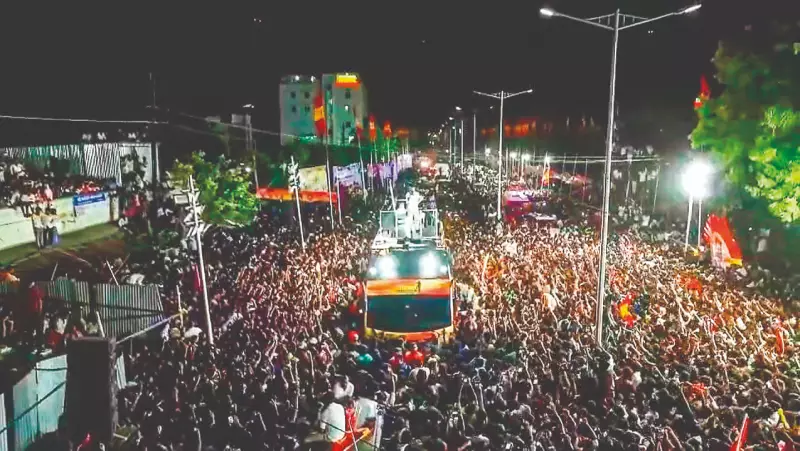
In a powerful judicial move that underscores the gravity of the Karur tragedy, the Supreme Court has wrested control of the stampede investigation from state authorities and handed it to the Central Bureau of Investigation. This decision marks a significant moment in India's judicial landscape, raising fundamental questions about institutional credibility and the pursuit of justice.
The Tragedy That Shook Tamil Nadu
The incident that prompted this extraordinary judicial intervention occurred during a crowded event in Karur, where a sudden stampede claimed multiple lives and left numerous injured. The chaos that unfolded that day has since transformed into a legal battle with far-reaching implications.
Why the Supreme Court Stepped In
The apex court's decision to transfer the case to CBI didn't emerge from vacuum. Several critical factors influenced this landmark ruling:
- Credibility Concerns: Serious questions were raised about the state police's ability to conduct an impartial investigation
- Public Outcry: Growing public demand for an independent probe into the circumstances leading to the tragedy
- Complexity of the Case: The multi-layered nature of the incident requiring specialized investigative expertise
- Accountability Questions: Need to identify responsibility at various levels of event organization and security management
Broader Implications for Judicial Authority
This decision represents more than just a case transfer—it signals the Supreme Court's willingness to assert its constitutional authority when public trust in state mechanisms wavers. The move demonstrates the judiciary's role as the ultimate guardian of citizens' rights and justice.
"When state investigative agencies face credibility issues, the higher judiciary must intervene to ensure justice prevails," legal experts observed, highlighting the constitutional significance of this transfer.
Public Trust: The Core Issue
At the heart of this judicial intervention lies the crucial element of public trust. The Supreme Court's action acknowledges that:
- Public confidence in investigative processes is fundamental to democratic functioning
- Transparency in tragedy investigations is non-negotiable
- Accountability must be established regardless of political considerations
- Victims' families deserve closure through a credible investigative process
What This Means for Future Cases
The Karur stampede case sets a significant precedent for how similar tragedies might be handled in the future. It establishes that:
Judicial oversight can override state jurisdiction when circumstances demand, and public interest remains the paramount consideration in administration of justice.
As the CBI takes charge of the investigation, all eyes remain on how this independent probe will unfold and whether it will restore the faith of affected families and the larger public in India's justice delivery system.






